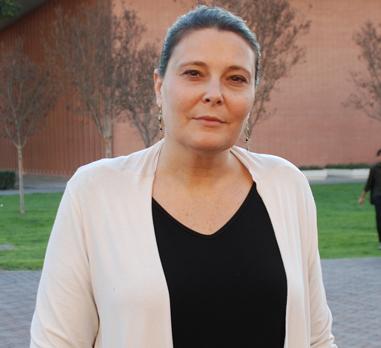Andi Gitow, Executive Producer at United Nations News and Media Division, Begins Four-Month Sabbatical as Visiting Scholar

Gitow is a two-time Emmy award-winning journalist and filmmaker who has been directing and producing broadcast features and documentaries for more than 15 years. She specializes in the coverage of genocide and conflict, international justice, and human rights and humanitarian issues. She has interviewed hundreds of conflict survivors across the globe including in Sudan, the Democratic Republic of Congo, Rwanda, Liberia, Bosnia, Cambodia, Colombia, and the Middle East. Gitow also helps oversee documentary production and global news and media strategy within the UN.
Before joining the UN, Gitow was a Network News Producer and Senior Producer at NBC Network News, where she produced award-winning feature stories and segments for all of NBC’s news programs. Her work has also appeared on other major networks and film festivals.
At the Shoah Foundation, Gitow will learn about the Shoah Foundation’s Visual History Archive and methodology of collecting and preserving testimonies of genocide survivors and bring that knowledge back to the UN. She will also offer her own expertise on collecting testimonies from current conflicts and will advise the Foundation on issues relating to interviewing subjects from past conflicts including Rwanda, Cambodia and others. She hopes to establish collaborations between the Shoah Foundation and departments across the United Nations and believes her time at the Foundation will help inform the the UN’s news coverage, educational programming, and its training for UN mediators and global staff who work with survivors and perpetrators.
Gitow will also host lectures, discussions and film screenings for students in human rights, international law, cinema and more on the University of Southern California campus throughout the semester.
Gitow has already begun to have discussions with Shoah Foundation staff about the similarities and differences between interviewing survivors of different conflicts around the world and she will join efforts to think conceptually and practically about how the Shoah Foundation could begin to take testimony from current conflicts, like those in Darfur and the DRC.
“From what I’ve witnessed in my work, the power of that kind of videotaped interview testimony can have a real impact rather immediately,” Gitow said. “It can help contribute to the understanding of the experiences of those caught up in ongoing violence and it may be used by people who are trying to influence and intervene.”
But whether conflicts are ongoing or happened decades ago, testimony is always an effective educational tool source of empowerment for the survivors themselves, Gitow said.
“For people to have the opportunity to tell their stories is exceptionally important,” Gitow said. “There’s something about the experience in and of itself of having their voices heard that is incredibly healing.”